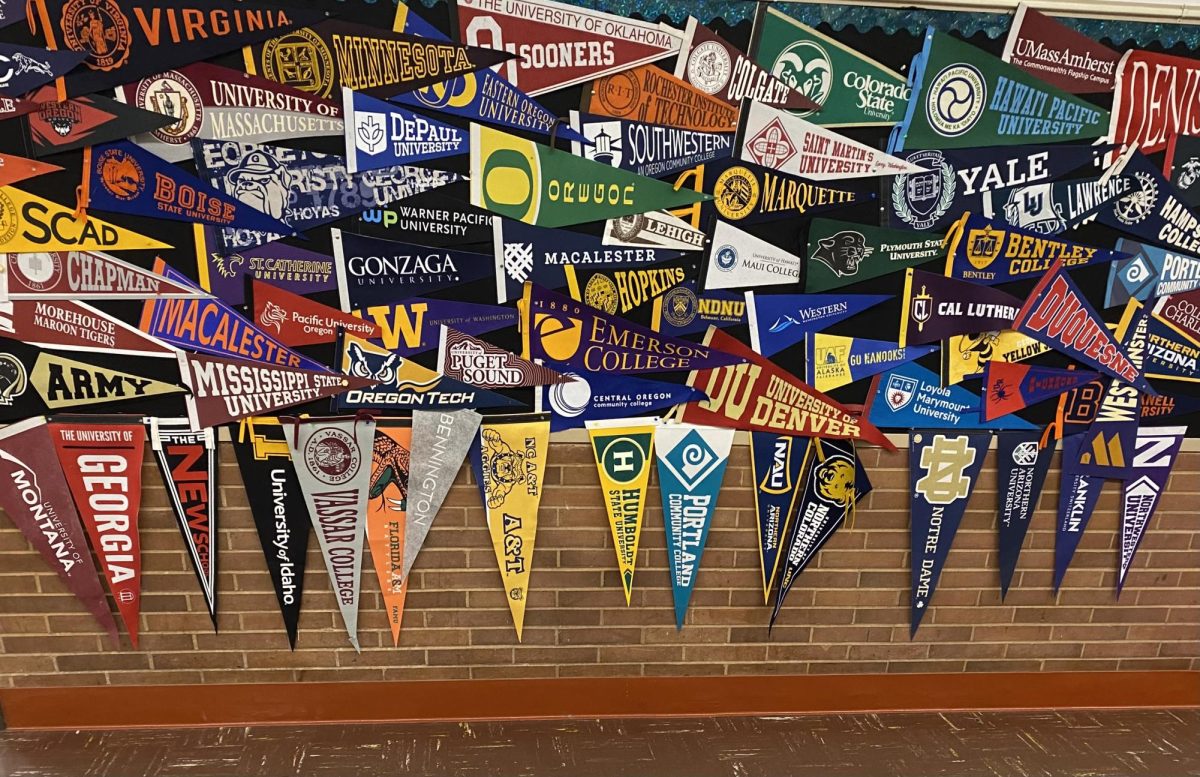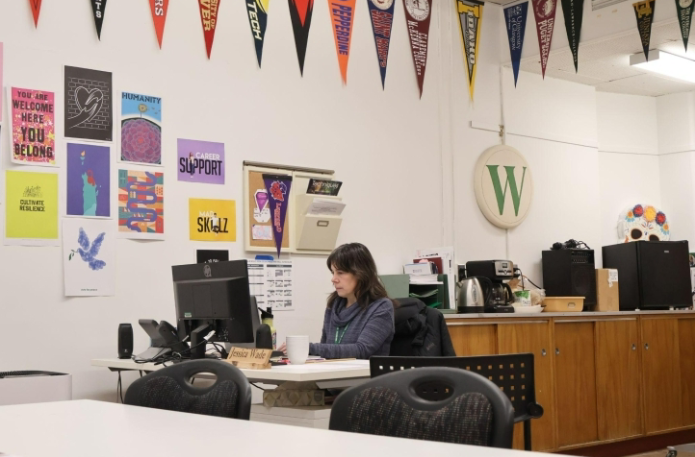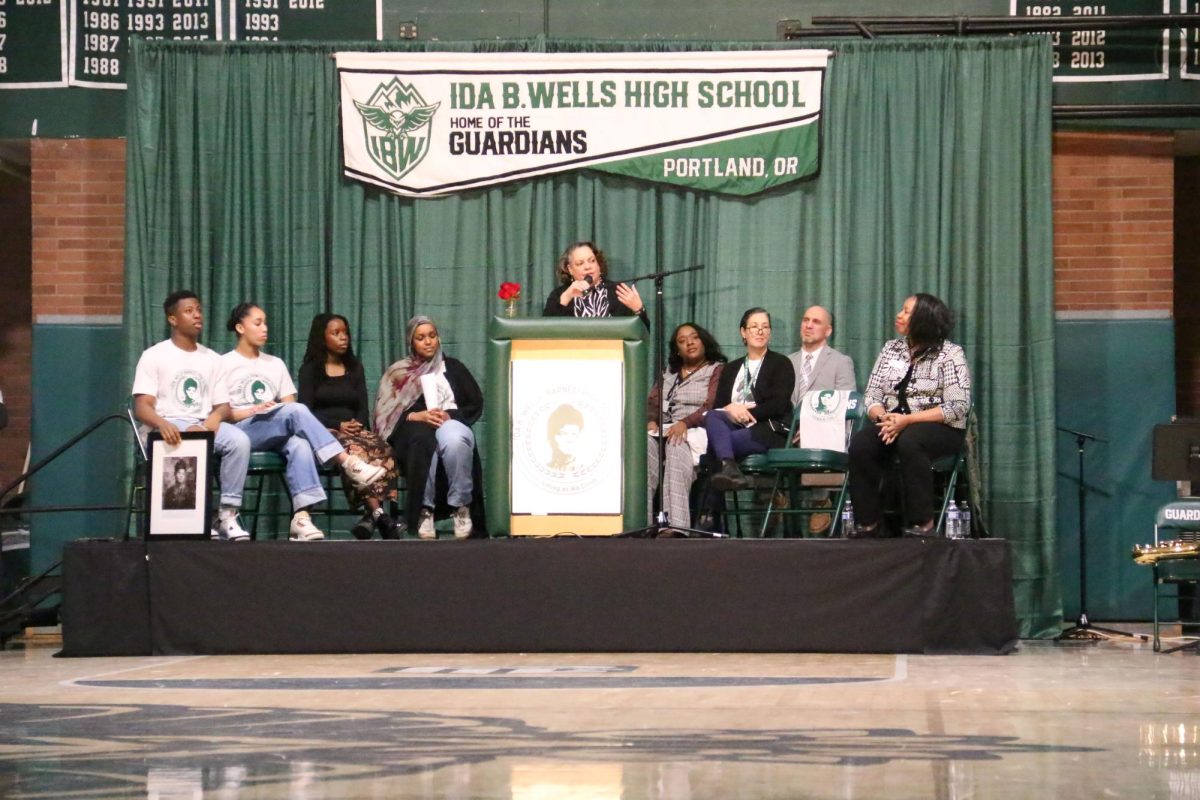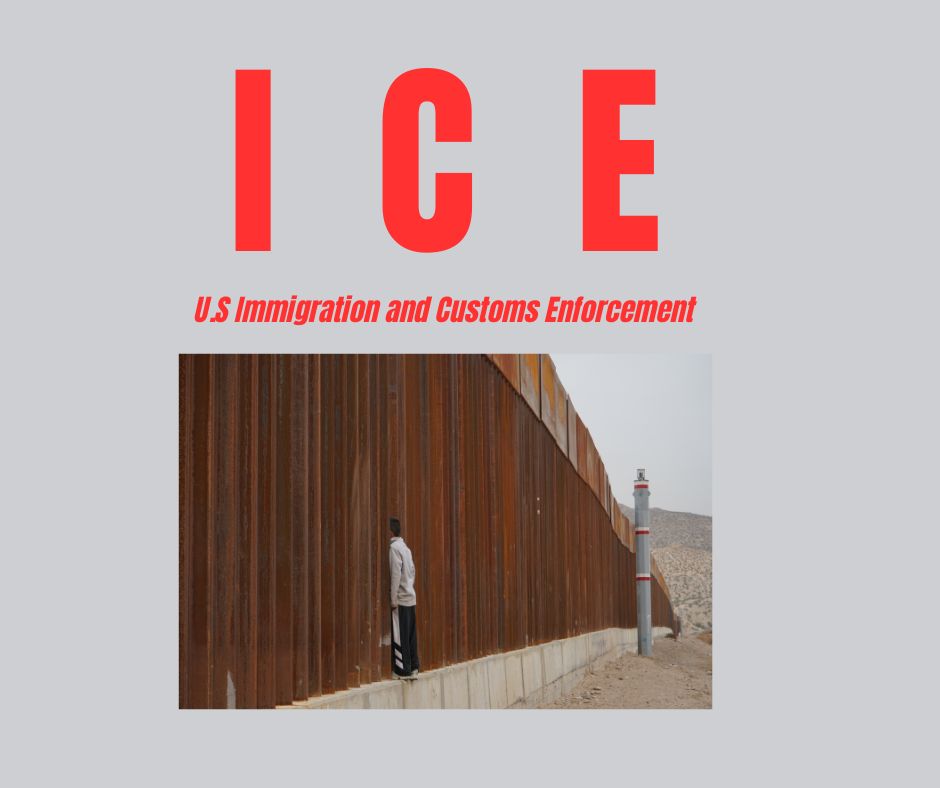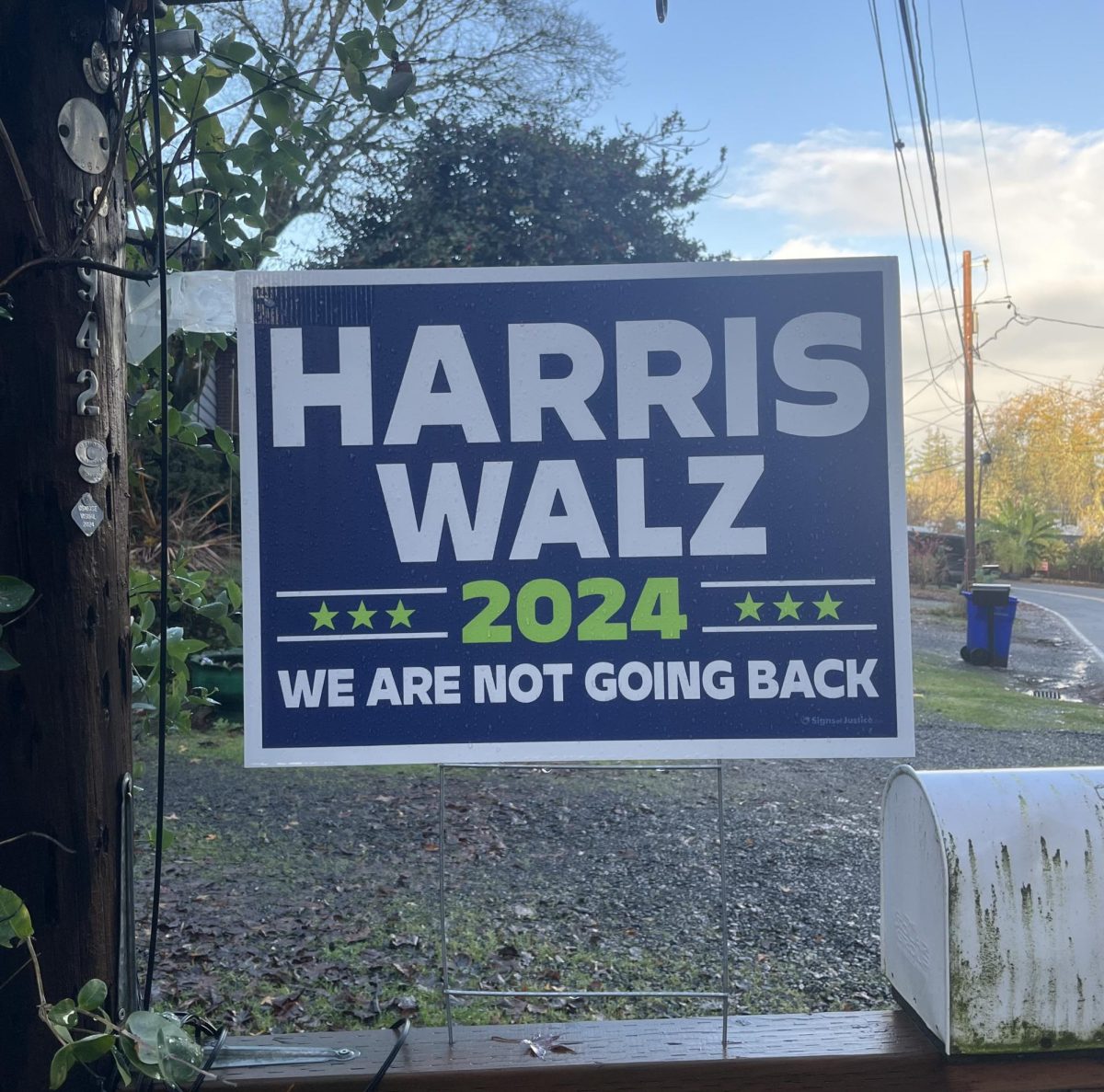With decision day on May 1. for high school seniors, students are choosing what factors are most important in the search for a university or college. Many applied to a mix of religious and non-religious schools and are learning about the unique differences between them — from differing communities to financial opportunities, each school has varying pros and cons.
For some religious universities, the religious aspect is very limited and cannot be gathered by just scanning the website’s front page. For non-religious students religion is often independent from their college decision.
“It was mainly about their environmental science program and music programs,” said Ves Turk, a senior at Ida B. Wells who applied to the University of San Francisco. “I don’t think that religion has any effect on whether or not I want to go there.”
Other factors including location and educational programs were higher on the list.
It’s important to note that factors such as racial diversity are not necessarily tied to whether a school is religious or not. For example, the University of San Francisco, a Jesuit university is more racially diverse than the average university in the U.S. with 26.1% Asian American students, 7.4% African American and 24% Hispanic or Latino. “There’s also a lot of other factors that go into that [school demographics],” said Turk. “Is it in a city or a more rural area?” These statistics are reflective of the San Francisco area and vary greatly from religious universities in more conservative cities.
In comparison, in Minnesota, St. Olaf College’s 2021 demographics added up to 67% white with only three indigenous students. Similar stats can be found at schools such as the George Fox University in Newberg, Oregon with a Christian affiliation, had 67.2% white students in 2021.
“There’s not a lot of diversity in some denominations of Christianity, especially some of the protestant ones,” said Lauren Patrick, a senior at IBW who applied to St. Olaf University. “It’s likely that students who are Muslim and Jewish would not attend.”
Due to the June 2023 Supreme Court decision to ban affirmative action, a program used to give educational opportunities to groups that often experience discrimination, diversity in colleges and universities has gone downhill. According to Urban Institute, states that had previously made efforts to ban the use of race in admissions such as Washington, have shown to have decreasing admissions of Black, Hispanic and Indigenous students.
“I worry for smaller liberal arts schools and a lot of religiously affiliated universities that their diversity rates will drop even lower than they are,” said Patrick.
Each religious school has varying levels of religious involvement required. For example at Wheaton College, students are required to express their personal faith in Jesus Christ before being admitted to the school. At others, students only have one required religious studies class.
“At this school, [St. Olaf College] religion doesn’t necessarily have to be present in your life as a student but they require a certain number of religion-based classes you have to take,” said Patrick. “But that could be world religion or even religious cooking.”
Each university is different and even religious universities do not only admit students of that same religion. At St. Olaf College only 18% of the class of 2025 identifies as Lutheran and 43% have no religious preference.
“I would prefer to find my own niches and people with similar interests [outside of religion],” said Maya Francaviglia, a senior at IBW.
Other schools have higher levels of religious participation such as Brigham Young University (BYU), a school associated with The Church of Jesus Christ of Latter-Day Saints. At BYU, students have the opportunity to be missionaries in another state or country and eventually return to school.
“One thing that I love specifically about BYU is they’re one of the only schools that will let you defer for a mission,” said Eden Harmon, an IBW alumni and current student at BYU. “I’ll be in Puerto Rico for a year and a half. My whole life will be service and teaching. I’ll help support churches there and search for teaching opportunities.”
Other schools such as Seattle University, a Jesuit school, may have a religious affiliation but also have a variety of faith communities including those focusing on Jewish, Muslim and Buddhist beliefs.
There are also many school-community differences when it comes to what qualities and activities are celebrated at a university.
“I wanted to go to a school that would have the same standards as mine,” said Eden Harmon, “A party school with lots of drinking was not appealing to me so I only applied to church-affiliated schools.”
“Going to a university with a shared religion would probably be a great community aspect,” said Sarah Brown, a senior at IBW and Seattle University applicant. “But for me, personally, when you go to college, a lot of it is about finding who you are and trying out new things. And for some people that might be in religion, but for me, it most certainly is not.”
Sharing religion with your fellow classmates can be a great way to build connections and explore faith in college.
“I’ve had times in my life where I’ve kind of gone away from my religion, and those have been the worst times of my life. I knew that during such a hard transition, I really wanted the support of the church in addition to my studies,” said Harmon. “Every Sunday, we have a lot of like church activities. So it’s really nice that I don’t have to go off campus to search for that.”
With some religious colleges, their values focus on supporting your community which one can do through church donation drives or advocating for marginalized groups.
“I know that they’re [University of San Francisco] looking for people that are advocates in their community,” said Turk. “It’s really cool that they’re prioritizing people that have a strong background in or are interested in political activism. I feel like that draws more people from different backgrounds into that university.”
Cost of attendance is a high priority for many students regardless of where they’d like to attend. Since 80 percent of private colleges are religious, being a religious school often correlates with higher tuition costs. However, there are exceptions.
One example is Brigham Young University which has a yearly tuition of only $6,300. “I am a member of the church and it’s cheaper for us because our church has tithing which is when you give 10 percent of all your income to the church and they use that to build temples to help support missionaries and part of it is that they’ve created these colleges,” said Harmon.
“In my case, I would be getting paid some money to go to a Luthern School from the Luthern church that my family goes to which is definitely a positive,” said Patrick.
Should you go to a religious university? It depends on whether the involvement of religion is something that gives you comfort, has no impact or is not something you’d like to be a part of your education. Every student has different needs whether they be financial or social and community support. Be sure to explore your options and remember that not all religious universities are the same.


